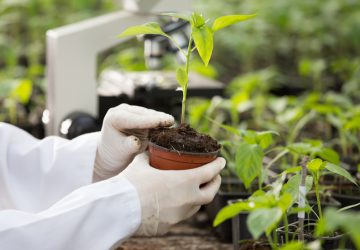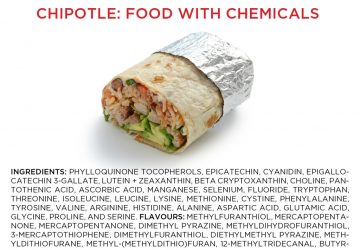Ah, here at the end of summer, we are back to reading about the survival of the Monarch butterfly. On Aug. 19, critics of agricultural biotech again unveiled their “poster insect” with the release of a second study that purports to show the potential risks Monarch butterflies could face with new biotech farming techniques. The study, released by a researcher at Iowa State University, charges that monarch butterflies can die when they feed on a B.t. microbe in biotech plants.
It is the latest salvo in the contentious war over the environmental impact of agriculture biotech. But hidden from public view is a simmering environmental controversy: which farming technique is more dangerous to the Monarch butterfly and the environment- biotechnology or organic farming?
At first blush, the question seems out of place. What does organic farming have to do with genetically altered crops? The answer has rarely been discussed outside of scientific and agricultural circles, but it gets to the heart of the current debate over our food supply.
Although food critics rarely mentioned it, the same “villainous” B.t. pesticide that is used in biotech crops is the same pesticide used by organic farmers to protect their vegetables. America’s farms today harvest millions of acres of B.t. potatoes, corn and cotton. They contain the genes of the naturally occurring microbe, B.t. When plant breeders insert B.t. into these crops, it enables the plant to create its own defense against borers and caterpillars without spraying the plants. This protein is harmless to humans or to the plants but deadly to the pests. The caterpillars and borers die when they bite the leaves of a B.t. plant.
Reducing the need to spray B.t. pesticide on crops should be good news to environmentalists. But there is a catch. Organic farmers spray millions of acres of B.t. on their crops too. And they have been among the most determined critics of biotech crops. In 1997, 13 organic trade associations filed a landmark petition with Greenpeace calling for the U.S. Environmental Protection Agency to ban the right to grow B.t. crops in this country.
The organic industry’s fear is that since biotech crops do not require pesticide spraying the biotech produce could compete with organic foods. Many privately express the fear that biotech could commercially flatten their industry. Who can blame them? If conventional crops can be sold more affordably without the use of insecticides, organic farmers who already charge very high prices for their fruits and vegetables could be in trouble. Who has not almost fainted from sticker shock when looking at organic produce prices in a supermarket?
Regardless of motive, consumers want straight answers. Do biotech crops endanger the Monarch butterfly? About two months ago the EPA, not normally regarded as an apologist for the biotech industry, answered with a clear no. The agency rejected the organic industry’s petition in a stunning 107-page single-spaced document that concluded “the currently available evidence does not support the conclusion that registered (biotech plants) may cause unreasonable adverse effects on the environment.”
Addressing the specific issue of the Monarch butterfly and non-target insects the EPA said, “Published field testing results and field test data submitted to EPA show minimal to undetectable changes in the beneficial insect population.” EPA further concluded that biotech crops “reduce adverse effects on non-target organisms because the organisms most likely to receive a dose… are those feeding on the crop.” Non-target insects usually do not eat the crop leaves, and spraying B.t. is less discriminating, potentially killing beneficial organisms.” In fact, EPA believes that available scientific data and information indicates that cultivation of B.t. crops has a positive ecological effect, when compared to “most likely alternatives.” The “most likely alternatives” are conventional and organic farming using B.t. sprays.
In simulated tests cited by critics, larvae were force-fed B.t. at very high doses. EPA rejected the procedure, noting “in the field, insects are usually exposed to smaller amounts of toxin than the laboratory test dose because in the field there is a greater choice of diet.” The Iowa State study ignored the EPA critique and duplicated the same test. The researcher designed worst-case conditions bearing little resemblance to real world. The unrealistic conditions included relying on the highest potency strain that makes up only 2 percent of the total B.t. corn, and in a laboratory literally placing the larvae on the leaves to feed, giving it no alternative food source.
Unfortunately, the case against biotech food has nothing to do with safety, health or the environment, but with commercial interests. The sadness of it all is that the organic farmers aren’t willing to confront biotech foods head on. Instead, they wish to hide behind the facade of caring about the environment.
— Douglas T. Nelson is the senior vice president and general counsel of the American Crop Protection Association, a nonprofit trade organization representing major manufacturers, formulators and distributors of crop protection, pest control and biotechnology products.




